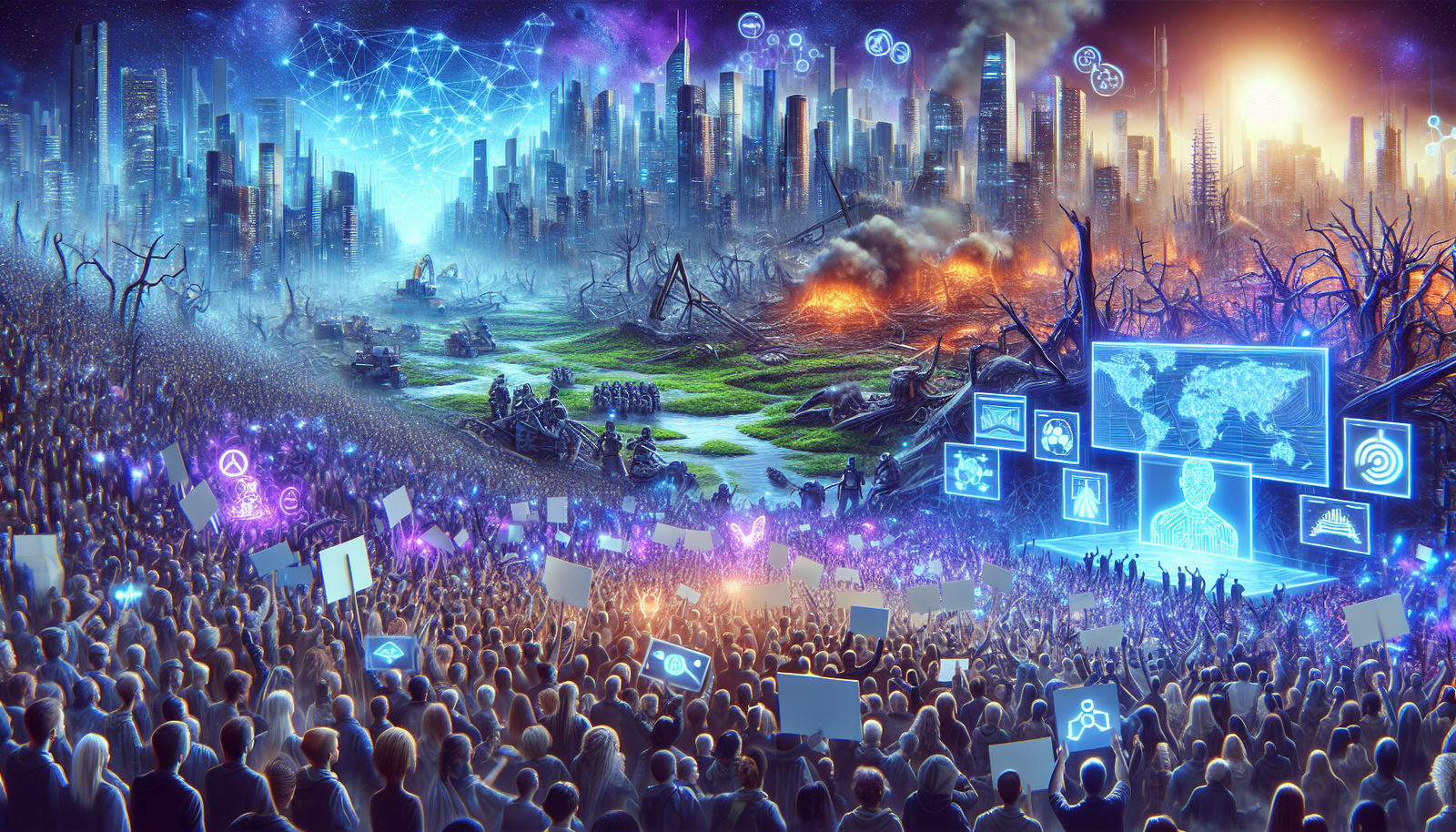One hundred NGOs sign an urgent call denouncing the excesses of artificial intelligence (AI) currently under development. *AI could exacerbate existing inequalities*. Controversial technologies fuel a global system of exploitation, marginalizing already vulnerable populations. *The unregulated development of AI threatens human rights*. The ethical and societal implications are alarming in this context.
NGOs’ Call: A Wake-Up Call About AI
In an article published by the daily newspaper “Le Monde,” one hundred NGOs, including Amnesty International and the Ligue des droits de l’homme, express alarming concerns. They highlight that artificial intelligence (AI) currently under development promotes a global system of exploitation, severely affecting human rights and leading to major social injustices.
A Technological Development Without Ethical Consideration
Civil society actors denounce a development of AI that operates primarily through the lens of profit. Human, social, and environmental stakes are largely ignored. More specifically, AI represents an opportunity to perpetuate forms of exploitation and inequalities. These technologies exacerbate existing discriminations, leading to catastrophic consequences for vulnerable populations.
The Concrete Effects on Human Rights
No measures are sufficient to mitigate the consequences of biased algorithms. AI reinforces stereotypes and perpetuates prejudices. The databases on which these systems rely include incomplete and often biased information. This situation harms marginalized groups’ access to essential resources, particularly in health and employment.
Recent Scandals: Compelling Evidence
Recent scandals significantly strengthen the NGOs’ arguments. For example, health algorithms have revealed sexist and racist biases. In Austria, an AI discriminated against women, preventing them from accessing training in the IT sector. Yet, other cases, such as those in France and Denmark, show similar practices in social assistance systems.
The Role of Austerity Policies
Political choices directly influence the implementation of AI systems. This deployment often fits within austerity policies that amplify discrimination. Consequently, access to public services and social benefits is becoming increasingly difficult for the most disadvantaged.
A Dangerous Predictive AI
The rise of predictive AIs raises important ethical and legal questions. These technologies are starting to replace human decisions in justice and policing. Algorithmic biases can thus reinforce racist practices. In some regions of the United States, algorithms assessing the risk of recidivism disproportionately label Black defendants as “high risk.”
Towards Necessary Regulation
NGO statements addressing governments aim to promote an ethical regulation of AI. It is imperative that human rights are integrated into technological development. Appropriate regulation could mitigate the risks of worsening injustices and amplifying violations of fundamental rights.
Government choices determine the future directions of AI. Discussions on the subject must go beyond mere technological considerations, envisioning systemic reforms. The time has come to engage in a global debate on the role and impact of AI systems in our contemporary societies.
Frequently Asked Questions About the NGOs’ Call Regarding AI and Global Exploitation
What is the main concern raised by the NGOs’ call regarding AI?
NGOs highlight that AI, in its current form, contributes to a global system of exploitation that exacerbates social inequalities and worsens discrimination, particularly against the most vulnerable populations.
Why do NGOs believe that AI fosters discrimination?
NGOs argue that AI systems often rely on biased databases that incorporate the designers’ prejudices, which reinforces stereotypes and limits access to resources for certain groups.
What concrete examples illustrate the dangers of AI?
Recent cases highlight sexist and racist biases in algorithms, such as those used by health services or employment platforms, where algorithmic decisions can worsen inequalities in access to these services.
How do AI technologies impact human rights?
The development and deployment of AI can infringe on human rights by limiting equitable access to essential services such as health and employment, while amplifying existing discriminations in social systems.
What solutions do NGOs propose to regulate AI?
NGOs call for strict regulation of AI that places human rights and social justice at the core of the process, opposing a vision of AI solely oriented toward economic growth and profits.
What role does the global summit on AI in Paris play in this context?
The summit is an opportunity for governments and civil society actors to discuss the ethical and social implications of AI, although NGOs fear that concerns related to human rights may not be adequately addressed.
How do austerity policies influence the development of AI?
Austerity policies can worsen inequalities by limiting resources for public services, while promoting the adoption of technological solutions like AI, which may reinforce discrimination in access to services.
What responsibilities do companies have in the development of AI?
Companies developing AI technologies must take responsibility for assessing and correcting biases in their algorithms, integrating an ethical approach in all phases of design and deployment.






